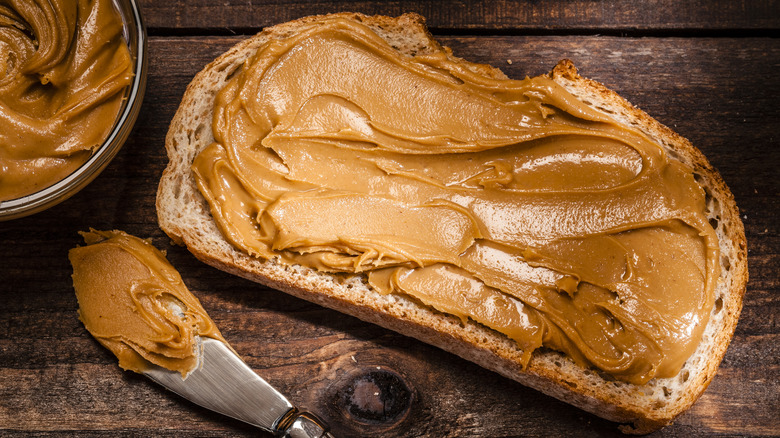
Peanut butter is a tempting breakfast choice that many have enjoyed at least once. For some, it’s a pantry staple, perfect for spreading on toast or blending into smoothies. Starting your day with peanut butter provides a healthy dose of protein, fiber, and fats to keep you full and energized until your next meal. Consuming peanut butter in moderation as part of your regular diet can be beneficial for your health.
While generally safe for most digestive systems and even recommended during an upset stomach, peanut butter can cause diarrhea for some individuals. Those with food intolerances or fat malabsorption might experience increased bowel movements or diarrhea after consuming it.
People with irritable bowel syndrome (IBS) should be cautious with peanut butter intake, as it may lead to gastrointestinal discomfort. Although peanut butter is typically a low-FODMAP food, some brands contain sugars that can irritate the digestive system. If you have digestive issues and experience diarrhea, consider reducing your intake or trying organic peanut butter to see if it helps.
A peanut butter allergy can affect your body

An allergic reaction to peanuts can also result in diarrhea. Unlike food intolerances, peanut allergies involve an immune response and can cause more severe symptoms than just indigestion.
Peanut allergies, one of the most common food allergies, can cause hives, skin redness or swelling, mouth and throat itching, stomach pain, nausea, vomiting, diarrhea, wheezing, shortness of breath, a runny nose, and a sensation of throat closure.
In severe cases, anaphylaxis can occur, a serious reaction involving lowered blood pressure, restricted breathing, constricted airways, and dizziness. While food allergies often develop in childhood, they can also appear later in life. If you’re allergic to peanuts, carefully check for dishes or products containing peanuts and avoid contact through inhalation. Seek medical attention if your diarrhea is related to an allergy, especially if accompanied by other symptoms, as anaphylaxis can be life-threatening.
Eating contaminated peanut butter can also cause diarrhea

Though rare, there have been instances of salmonella contamination in peanut butter leading to diarrhea. Food poisoning from this can also cause vomiting and stomach cramps.
While many don’t think twice about eating this crunchy treat from a jar on the counter, peanut butter can spoil due to its fat content. Signs of spoilage include a darker color, rancid and metallic smell, dryness, and possibly mold growth. If you overlook these signs and consume spoiled peanut butter, the taste will likely be bitter and sharp.
A conventional jar of peanut butter can be stored unopened in the pantry for 6 to 9 months, while organic brands should be refrigerated and last a year. Refrigerated, non-organic peanut butter can also last for 12 months. Once opened, both conventional and organic peanut butter can be refrigerated for 3 to 4 months.




